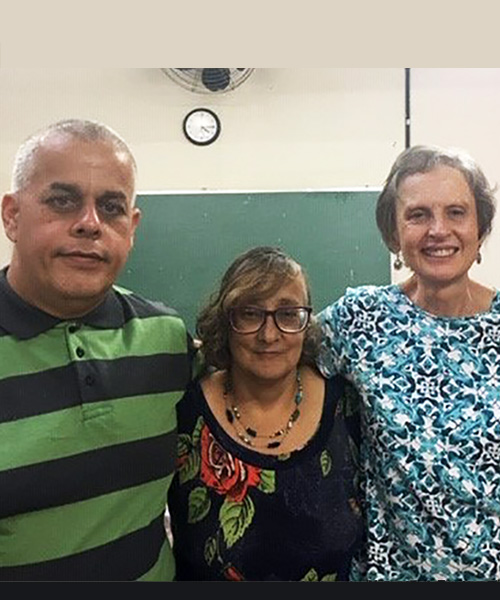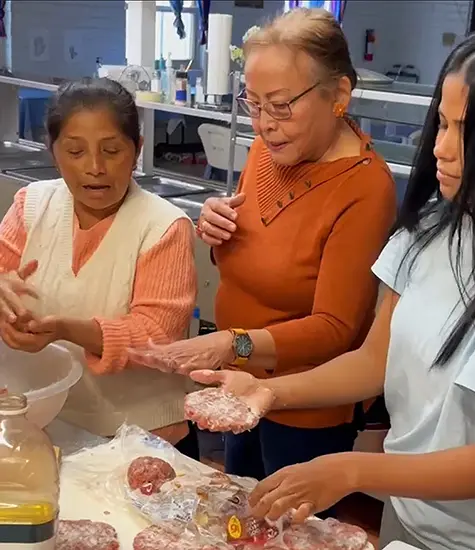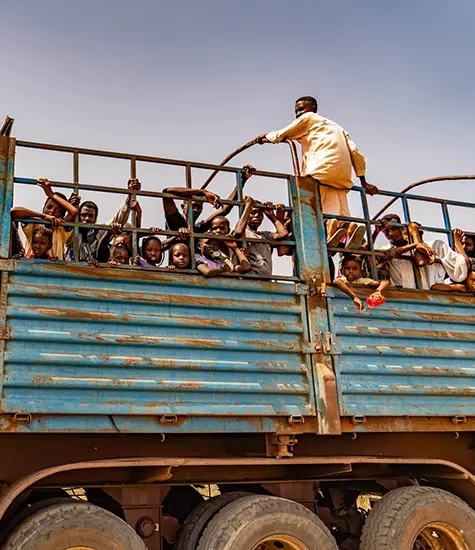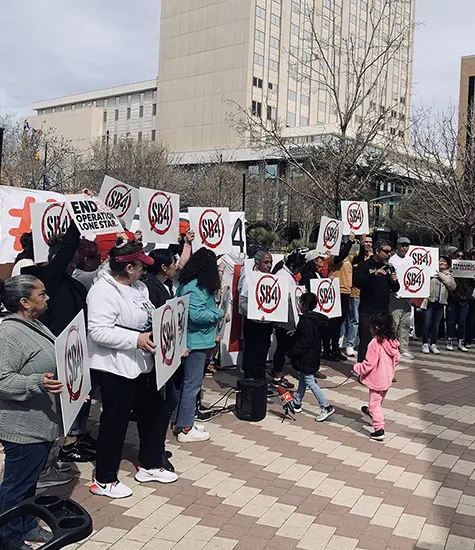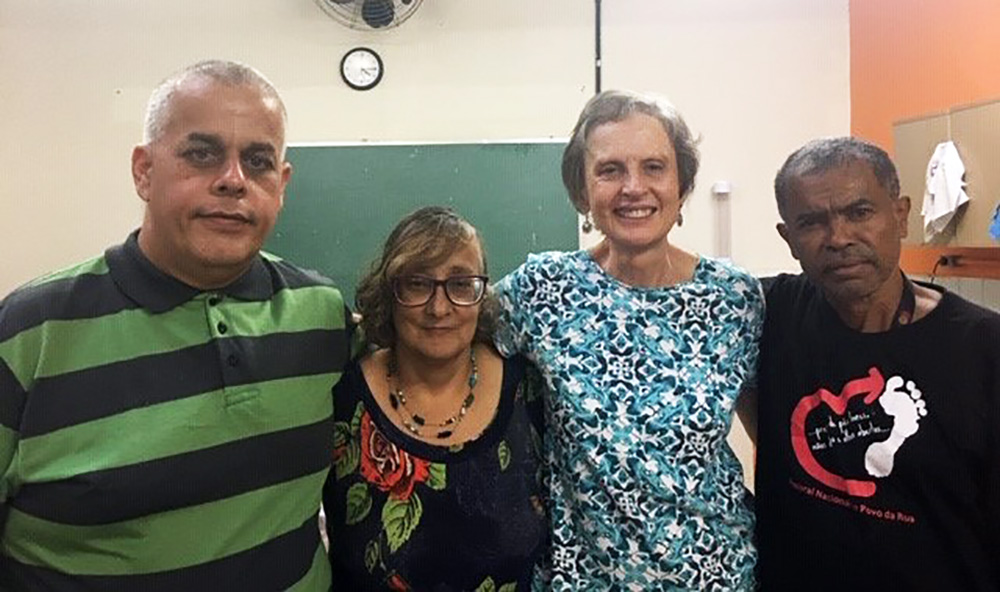
From left: Paulo, Marina, Joanne and Zé
Six days a week at 4:45 a.m., Paulo leaves the house to go to his maintenance job at one of the busiest train stations here in São Paulo. On a normal working day, more than 5 million passengers ride the subway system in the city. This is heavy physical work, and Paulo’s job responsibilities have increased due to diminished numbers of available workers because of COVID-19. However, he has nothing but gratitude for the blessing of a job.
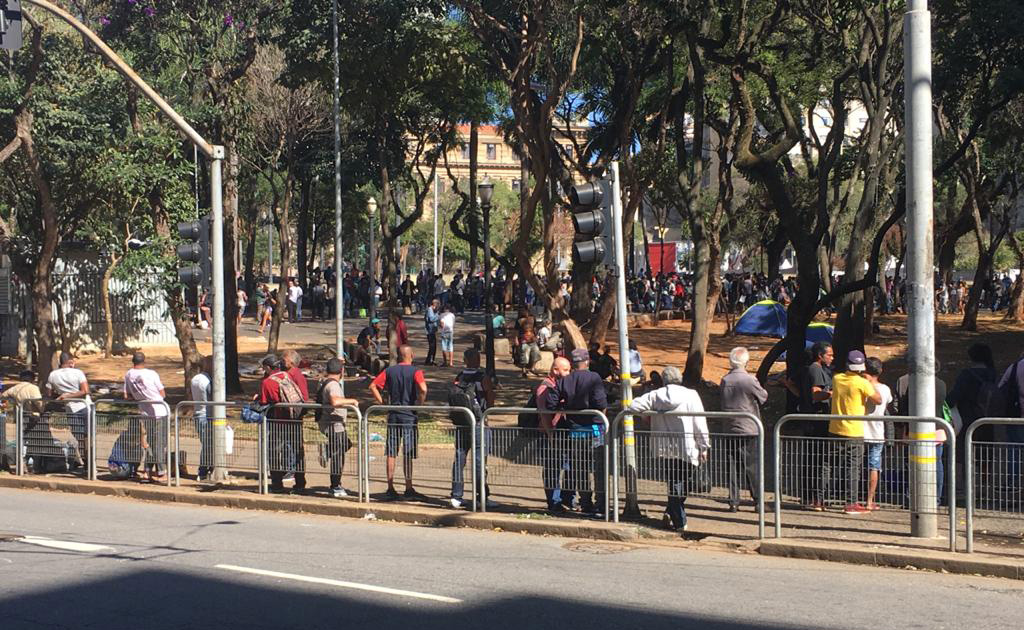
On June 19, people experiencing homelessness line up for a meal at Praça da Sé in the center of São Paulo.
According to the Brazilian Health Ministry, as of June 26, the number of deaths from coronavirus in the country exceeds 55,000 (the world’s second-highest after the U.S.) with more than 1.2 million confirmed cases. São Paulo has had almost 14,000 deaths and almost a quarter million confirmed cases. The Public Ministry of Work has received more than 1,500 complaints about violations related to lack of supplies and personal protection equipment for essential workers like Paulo.
In spite of the high and rising numbers throughout the country, Brazil’s President Jair Bolsonaro is pressuring public health officials to do away with physical-distancing measures and open up commercial establishments.
The poorest neighborhoods of São Paulo have the highest number of cases of COVID-19. In the month of May, deaths from the virus in the poorest neighborhoods grew by 228 percent. The neighborhood of Jardim Ângela in the district where I work is currently the epicenter of the city of São Paulo, with the highest number of confirmed cases. However, the virus is now also rapidly spreading into smaller cities and rural areas in the interior of the state.
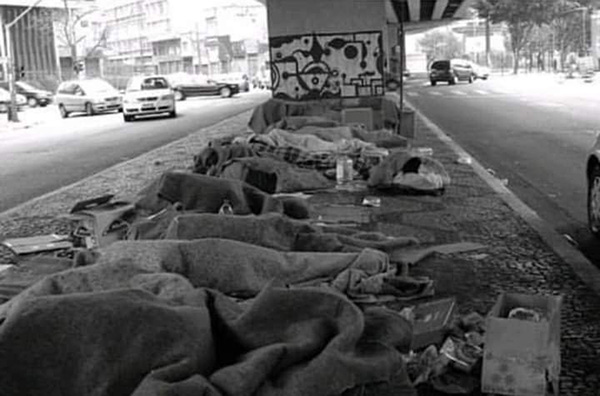
A common scene in Sao Paulo where an estimated 25,000 people live on the streets.
I first met Paulo 14 years ago when he lived on the street, and I continue to be inspired by his life journey. Paulo grew up in a poor family and fled to the streets because of family violence after the death of his mother. He was young, unemployed and began drinking heavily. As best he could, he tried to cope with hunger, marginalization and the difficulties of survival on the streets.
At one point, a friend invited him to our Glicério Catholic base community, which welcomes people currently and previously in situations of homelessness. It was there, according to him, that he began to hope in the possibility of change. He moved into a shelter, began informal work and met his future wife, Marina, who had also lived on the street.
Paulo says he did not have a religious upbringing but “enjoyed being in a community of folks who also were struggling and uniting to help each other. It was not easy for me. I had to learn to trust others again, but there was support as well as sharing of stories, actions of solidarity and opportunities to learn new skills.”
According to Paulo, “The scripture reflections and community liturgies, meetings and social events are essential in my life…. I felt so beaten down and never thought that I had any capacity. Now I am blessed to be part of this community and to be the person who proclaims the Word at our liturgies. I feel like now I am someone.”
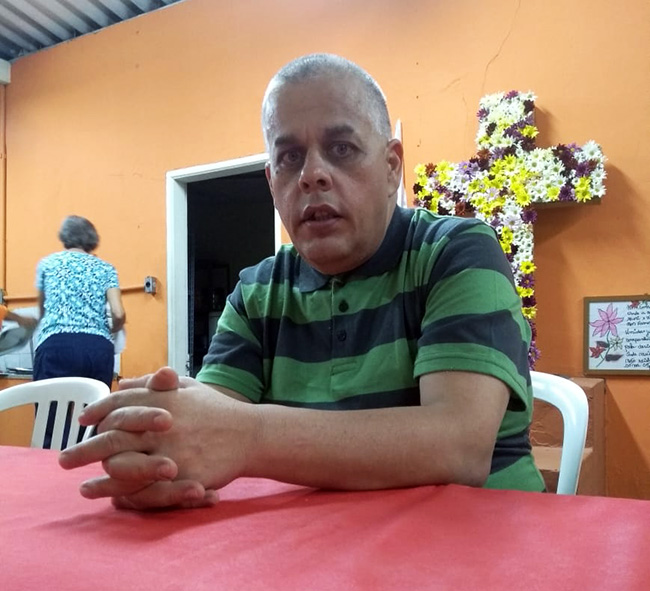
Paulo in the chapel of the Glicério Catholic base community
Paulo says he particularly appreciated the forgiveness and reconciliation course that we facilitated at the community. “It helped me to deal with the anger at all that happened to me.… I am now a much more peaceful person and grateful to this community for welcoming me. I still have many difficulties but feel the friendship of members of the community.”
Marina and Paulo were married in the community, and as part of their wedding, they washed each other’s feet. For Paulo, this ritual is the heart of the Gospel — being of service to others and accepting their help, thereby creating mutual relationships.
Given the large number of people, especially families, who are in situations of homelessness in São Paulo — the official estimates are at least 25,000 — finding refuge in train stations is common. In his daily work, it is hard for Paulo to listen to colleagues complaining about and discriminating against those who are homeless and seeking shelter in the stations during the cold or rainy weather.
Paulo empathizes and reminds his coworkers that “they are people, just like us.” He remembers the suffering of those cold winter days, and he says, “If I am laid off from my job, I will be back on the street.”
Paulo and Marina now have their own living space. Even though it is only two rooms, for Paulo “it is a blessing. Life is still difficult for us financially and we have many struggles, but I feel like a new person. My dream is to have a house someday.”

